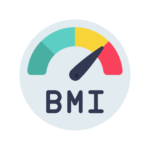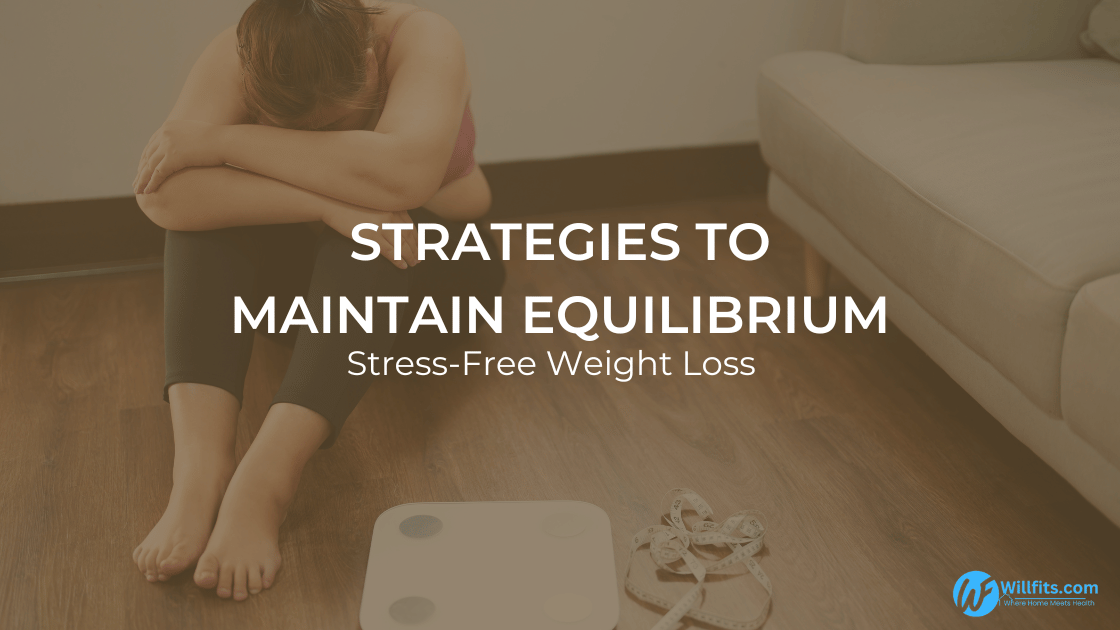Stress-Free Weight Loss
In today’s fast-paced world, stress has become an inevitable part of our lives. Unfortunately, chronic stress can sabotage your weight loss efforts, leading to weight gain and making it harder to shed those extra pounds. But don’t worry, achieving stress-free weight loss is possible! By incorporating strategies that help maintain equilibrium, you can manage stress effectively while working towards your weight loss goals.
How Stress Affects Weight Loss
Hormonal Imbalance: Stress triggers the release of cortisol, a hormone that can lead to increased appetite and cravings for unhealthy foods. High levels of cortisol can also promote the storage of fat, particularly in the abdominal area.
Emotional Eating: When stressed, many people turn to food for comfort, often choosing high-calorie, sugary, and fatty foods. This emotional eating can lead to weight gain and hinder weight loss efforts.
Disrupted Sleep: Stress can interfere with sleep quality, leading to sleep deprivation. Poor sleep can disrupt the hormones that regulate hunger and satiety, making it harder to control your appetite.
Reduced Physical Activity: Stress can drain your energy and motivation, making it less likely for you to engage in regular physical activity, which is crucial for weight loss.
Hormonal Imbalance: Stress triggers the release of cortisol, a hormone that can lead to increased appetite and cravings for unhealthy foods. High levels of cortisol can also promote the storage of fat, particularly in the abdominal area.
Emotional Eating: When stressed, many people turn to food for comfort, often choosing high-calorie, sugary, and fatty foods. This emotional eating can lead to weight gain and hinder weight loss efforts.
Disrupted Sleep: Stress can interfere with sleep quality, leading to sleep deprivation. Poor sleep can disrupt the hormones that regulate hunger and satiety, making it harder to control your appetite.
Reduced Physical Activity: Stress can drain your energy and motivation, making it less likely for you to engage in regular physical activity, which is crucial for weight loss.
Strategies for Stress-Free Weight Loss
Mindful Eating: Practice mindful eating by paying full attention to your meals. Eat slowly, savor each bite, and listen to your body’s hunger and fullness cues. This helps prevent overeating and promotes a healthier relationship with food.
Regular Exercise: Incorporate regular physical activity into your routine. Exercise is a powerful stress reliever and helps boost your mood by releasing endorphins. Aim for activities you enjoy, whether it’s walking, yoga, dancing, or swimming.
Adequate Sleep: Prioritize getting 7-9 hours of quality sleep each night. Create a relaxing bedtime routine, keep a consistent sleep schedule, and make your sleep environment conducive to rest by keeping it cool, dark, and quiet.
Relaxation Techniques: Incorporate relaxation techniques such as deep breathing exercises, meditation, or progressive muscle relaxation into your daily routine. These practices can help reduce stress and promote a sense of calm.
Healthy Coping Mechanisms: Find healthy ways to cope with stress instead of turning to food. This could include hobbies, spending time with loved ones, reading, or engaging in creative activities.
Balanced Nutrition: Eat a balanced diet rich in whole foods such as fruits, vegetables, lean proteins, and whole grains. Avoid highly processed foods and sugar, which can contribute to mood swings and energy crashes.
Stay Hydrated: Drinking enough water is crucial for overall health and can help manage stress. Dehydration can affect your mood and energy levels, so aim to drink at least 8 glasses of water a day.
Set Realistic Goals: Set achievable and realistic weight loss goals. Avoid putting too much pressure on yourself, as this can lead to additional stress. Celebrate small victories and progress along the way.
Seek Support: Don’t hesitate to seek support from friends, family, or professionals. Joining a support group or working with a coach can provide encouragement and accountability, making your weight loss journey less stressful.
Stress-free weight loss is about creating a balanced and healthy lifestyle that supports your physical and mental well-being. By managing stress effectively and incorporating these strategies into your daily routine, you can achieve your weight loss goals without compromising your mental health.
Ready to embark on a stress-free weight loss journey? Start by implementing these strategies today and watch as they transform not only your weight but also your overall quality of life. Remember, a healthier, happier you is within reach!













